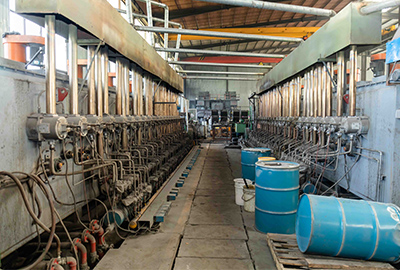broad bolts
stu . 20, 2024 21:26 Back to list
broad bolts
Exploring the Versatility and Utility of Broad Bolts
Broad bolts, a term that encompasses a diverse range of fasteners, have become essential components in various industries, from construction to automotive manufacturing. Their broad heads and sturdy shafts make them unique and particularly effective in applications that require significant load-bearing capacity. This article delves into the characteristics, advantages, and applications of broad bolts, highlighting why they are a favored choice in numerous fields.
At first glance, broad bolts might appear similar to standard bolts, yet they possess distinctive features that set them apart. The most notable characteristic is the wide, flat head that allows for a greater surface area to distribute load. This design is particularly beneficial in preventing the bolt from pulling through the material it is fastening, making broad bolts ideal for use with softer materials, such as wood. Additionally, the broader heads often allow for easier installation and maintenance since they can be tightened or loosened using larger tools.
One of the main advantages of broad bolts is their load-bearing capacity. The increased surface area of the head not only prevents the bolt from embedding itself into the material but also helps distribute forces more evenly across its length. This property is essential in applications where structural integrity is crucial. In construction, for example, broad bolts are commonly used to secure beams and other structural elements, ensuring that the overall framework remains stable and resistant to environmental stresses.
broad bolts

Broad bolts also play a significant role in bridge construction and heavy machinery assembly. Their design allows engineers to create stronger and more durable structures that can withstand the considerable forces exerted during operation or due to natural elements. In the automotive industry, broad bolts are often utilized in assembling various components of vehicles, ensuring that critical parts remain firmly attached, thereby enhancing safety and performance.
Another notable feature of broad bolts is their versatility. These fasteners are available in various materials, such as steel, stainless steel, and titanium, allowing them to be used in different environments—whether exposed to moisture, heat, or corrosive substances. Furthermore, broad bolts can come with different surface finishes to enhance their aesthetic appeal or provide additional resistance to wear and corrosion. The flexibility in material and finish means that there is a broad bolt suitable for nearly any application.
Installation and maintenance of broad bolts are typically straightforward, with many being designed for easy handling. Their compatibility with standard tools means that workers can quickly install or replace them as needed, thus minimizing downtime in manufacturing and construction processes. Moreover, their robust nature reduces the need for frequent replacements, leading to cost savings in the long run.
In conclusion, broad bolts represent a crucial aspect of modern engineering and construction. Their design, characterized by a wide head and robust construction, offers numerous advantages such as enhanced load-bearing capacity, versatility in application, and ease of installation. As industries continue to evolve, the demand for reliable and effective fastening solutions like broad bolts will undoubtedly remain high. Embracing their utility can lead to safer, more efficient, and cost-effective projects, underscoring their value in a wide array of applications. Whether in building bridges, assembling machinery, or crafting furniture, broad bolts are an unsung hero in the world of fasteners, deserving recognition for their critical role in our daily lives.
Latest news
-
Wire Bolts Suppliers: Durable & Reliable Fasteners for Every Project
NewsAug.25,2025
-
Premium Cabinet Bolts Supplier | Wholesale & Custom Solutions
NewsAug.24,2025
-
Reliable Axle Nuts Supplier | Quality & Precision Fasteners
NewsAug.23,2025
-
Durable Bolts for Lawn Mower Handle - Top Supplier & Manufacturer
NewsAug.22,2025
-
High-Quality Bolts for Lawn Mower Handle Supplier & Manufacturer
NewsAug.21,2025
-
Reliable Axle Nuts Supplier | High-Quality Automotive Parts
NewsAug.19,2025
